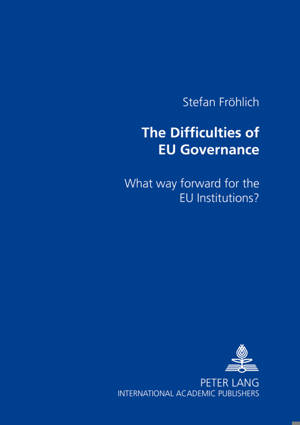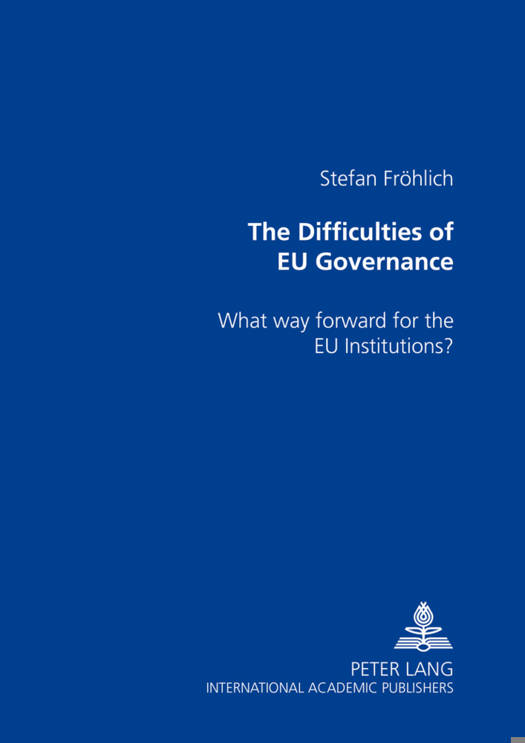
- Afhalen na 1 uur in een winkel met voorraad
- Gratis thuislevering in België vanaf € 30
- Ruim aanbod met 7 miljoen producten
- Afhalen na 1 uur in een winkel met voorraad
- Gratis thuislevering in België vanaf € 30
- Ruim aanbod met 7 miljoen producten
Zoeken
The Difficulties of Eu Governance
What Way Forward for the Eu Institutions?
Stefan Fröhlich
Paperback | Engels
€ 50,45
+ 100 punten
Omschrijving
The book provides an account of the EU's institutional evolution and the current reform debate. It identifies the challenges in view of imminent enlargement and the launch of the draft Constitution by the Convention on the Future of Europe. Special attention is given to the institutional issues involved in the current round of treaty reform. In light of the Convention's proposals the author concludes that the idea of a dramatic overhaul of the EU system of governance is not realistic. In the years to come it is quite unlikely that the Council machinery could leave all executive functions to the Commission and become only a legislative body - a second house to the present European Parliament. Rather the current tendencies at the European level suggest that there are valid reasons why the Council and notably the European Council could perform the role of a European government.
Specificaties
Betrokkenen
- Auteur(s):
- Uitgeverij:
Inhoud
- Aantal bladzijden:
- 174
- Taal:
- Engels
Eigenschappen
- Productcode (EAN):
- 9783631503010
- Verschijningsdatum:
- 17/12/2003
- Uitvoering:
- Paperback
- Formaat:
- Trade paperback (VS)
- Afmetingen:
- 148 mm x 210 mm
- Gewicht:
- 239 g

Alleen bij Standaard Boekhandel
+ 100 punten op je klantenkaart van Standaard Boekhandel
Beoordelingen
We publiceren alleen reviews die voldoen aan de voorwaarden voor reviews. Bekijk onze voorwaarden voor reviews.








